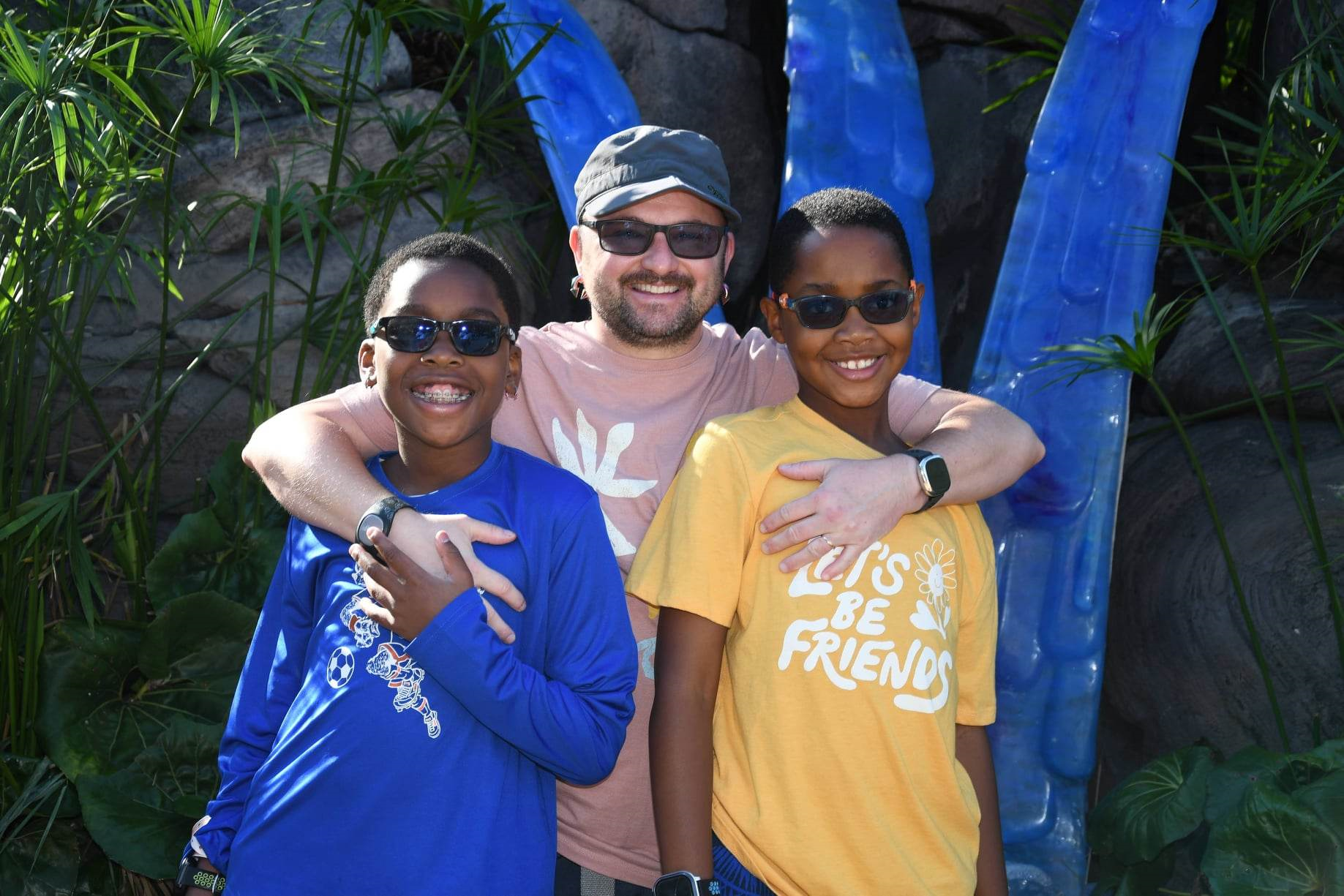 C.J. has 2 children and lives in Solon.
C.J. has 2 children and lives in Solon.
What do you do to relax?
Listen to music, go for a walk, journal.
What else would you like to tell us about yourself?
I'm a short, left-handed, queer, Caucasian, Jewish man, married to a queer woman, with two African American adopted children, all living with ADHD. Being able to advocate for my family is my superpower!
What benefits has Connecting for Kids brought to you and your family?
From the educational programs to the Facebook groups, Connecting for Kids has provided me with tools, resources, and connection to others for my ever-changing family needs.
How parenting a child who struggles has changed my ideas on parenting...
From an early age, I was a caretaker. Taking care of my mom who had depression and my two younger sisters taught me to be resilient, tough, yet loving and caring. I went to college and graduated with a degree in Early Childhood Education. Caring for and teaching young children gave me true joy. Being a positive male role model in a predominantly female industry was at times difficult. Still, I pressed on. The way their brains were like sponges craving for every bit of knowledge was what drove me forward. Flash forward 13 years, I'm married and thinking about children. I knew I wouldn't have biological children but how children fit into our lives was unknown. We started foster parent classes and knew it would be a long hard road ahead. The adoption agency we worked with, was known for providing intensive training specializing in severely abused, neglected, and traumatized children. What we didn't know is that we would change from foster parenting classes to adoption and be matched with brothers ages 2 and 4. While learning to be a family we realized the needs of both children were severe. Our 4-year-old was behind educationally and had big feelings he couldn't verbalize. Our 2-year-old was doing excellent educationally but struggled with sensory, speech, and basic movements. Having two very different but high-needs children as a new parent forced me to throw out everything, I thought I knew about children, development, and basic needs. My ideas of what a typical child should or could do did not apply to either one of my children. As we navigated through countless services, appointments, and care providers, I became an excellent advocate. My children are now 8 and 10 and still have very different needs. We’ve been through hospitalizations, therapists, treatments, and assessments. No matter how much education a person has, there is no book for real-life experiences or lack of resources for your unique needs. Connecting for Kids has been a great resource for our family. The parenting groups, educational programs, Facebook groups, and the very kind and personable staff has helped us navigate some difficult times.
The hardest thing for me to learn was...
Admitting I didn't have to do it alone. Tapping my wife in when things just got too hard or simply searching and asking for help. Help for my immediate needs and my emotional well-being. I don’t have to take on the stress of four people alone. People want to help but they need to be clued in. Pretending I have it all together or not allowing others in not only pushes people away, but it also doesn’t open up the door for them to ask for help. We’re all just bumbling around doing the best we can.
The best thing about parenting a child who struggles is...
Overcoming the hurdles together. Difficult days won't last forever and when I see a smile, get an impromptu hug, or a simple I love you, every bit of anger, sadness, tear was well worth it. Deep down I know that the struggles we share are only surface level. There are so many internal and unknown struggles we haven't and may never get to but showing up, being there, means they will never have to do it alone.
Do you have any recommended resources such as blogs, websites, or books that we can share?
Positive Education Program (PEP), Transracial Journeys, Understood and any book by Dr. Hallowell.